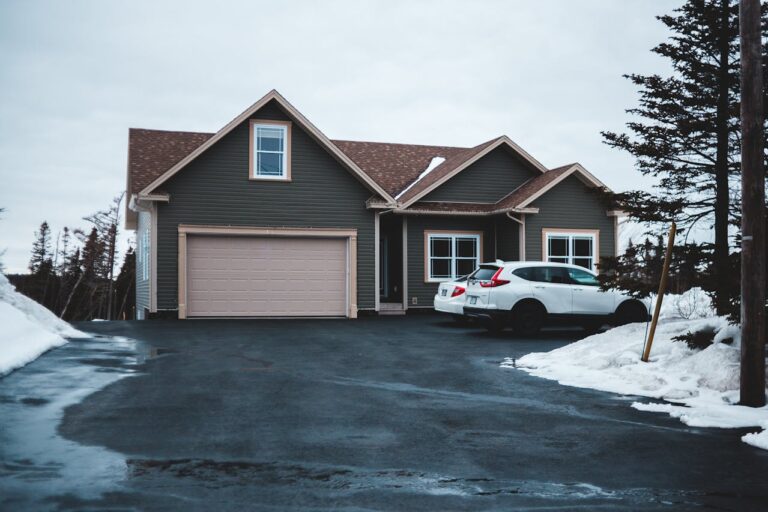Paving a driveway, parking lot, or a small road? You’ve probably heard the terms asphalt and blacktop used interchangeably. But are they really the same thing?
Understanding the differences between the two can help you make the right choice for your property and ensure a long-lasting surface. Let’s break it down.
Table of Contents
ToggleWhat is Asphalt?
Asphalt is a paving material made from a combination of bitumen and aggregates. Bitumen acts as a binder, holding the rocks, sand, and gravel together to form a durable surface. Asphalt is strong and flexible, which makes it ideal for roads, highways, parking lots, airports, and driveways.
The biggest advantage of asphalt? Durability. It withstands heavy traffic and varying weather conditions, making it suitable for many projects. Asphalt can also be customized with different mixes depending on use, meaning your driveway, parking lot, or roadway can be tailored for performance. With professional asphalt services, repairs, and paving, you can ensure your surface stays strong, smooth, and long-lasting.
What is Blacktop?
Blacktop is actually a type of asphalt, but it’s made with a slightly different mix. It contains finer aggregates and a higher percentage of bitumen. This gives it a smoother finish and makes it a popular choice for driveways, parking lots, and small-scale projects.
Blacktop is known for its dark colour and uniform surface. It’s easier to apply than standard asphalt because it requires less heavy machinery during installation. It’s also affordable, making it popular for homeowners who want a sleek, functional driveway without overspending. It’s also widely used by Commercial & Municipal Property Maintenance Service providers in Winnipeg who need reliable, cost-effective paving solutions.
Biggest Differences Between Asphalt and Blacktop
In short, blacktop is a form of asphalt. However, there are a few key differences that set them apart from one another:
- Composition: Standard asphalt combines multiple aggregate sizes for additional strength. Meanwhile, blacktop uses finer materials and a higher bitumen content.
- Uses: Asphalt works best for roads, highways, and commercial areas. Blacktop makes more sense for residential driveways, smaller parking lots, and light traffic areas.
- Durability: Asphalt is built to last and withstand heavy use. Blacktop, while durable, works best for lighter loads and will not last as long under constant heavy traffic.
- Maintenance: Both surfaces require regular maintenance, such as crack sealing and resurfacing. On the other hand, blacktop is easier to patch and resurface for small-scale repairs.
- Appearance: Blacktop stands out for its uniform, dark, smooth finish. Asphalt surfaces vary depending on the mix and size of the aggregates used.
While similar, asphalt and blacktop are not the same. Knowing the key differences between the two will help you choose the one that suits your needs.
Deciding Between Asphalt and Blacktop
Asphalt or blacktop? Which one is right for your needs? It comes down to usage, budget, and traffic levels. Here’s a basic overview:
- Homeowners: Blacktop is the most common choice for driveways, patios, and smaller areas. That’s because it’s cost-effective, easy to install, and visually appealing.
- Commercial or High-Traffic Areas: Standard asphalt is best for roads, large parking lots, and industrial areas. It offers strength and longevity and can handle heavy vehicles and constant traffic.
Keep in mind that a well-installed surface, whether that’s asphalt or blacktop, will last longer with regular maintenance. Regular cleaning, sealing, and prompt repairs are the best way to keep your pavement in top shape.
Distinguishing Between Asphalt and Blacktop
What’s the difference between asphalt and blacktop? Asphalt is a broad category of paving materials used in roads and driveways. Blacktop is finer and smoother asphalt, most commonly used for residential and light commercial projects. At The Whiteout Group, we help you choose the right one for your project. Your property, budget, and traffic expectations always come first.
Unsure about which option makes the most sense for you? Contact us today to learn more and get a quote for your next project!




